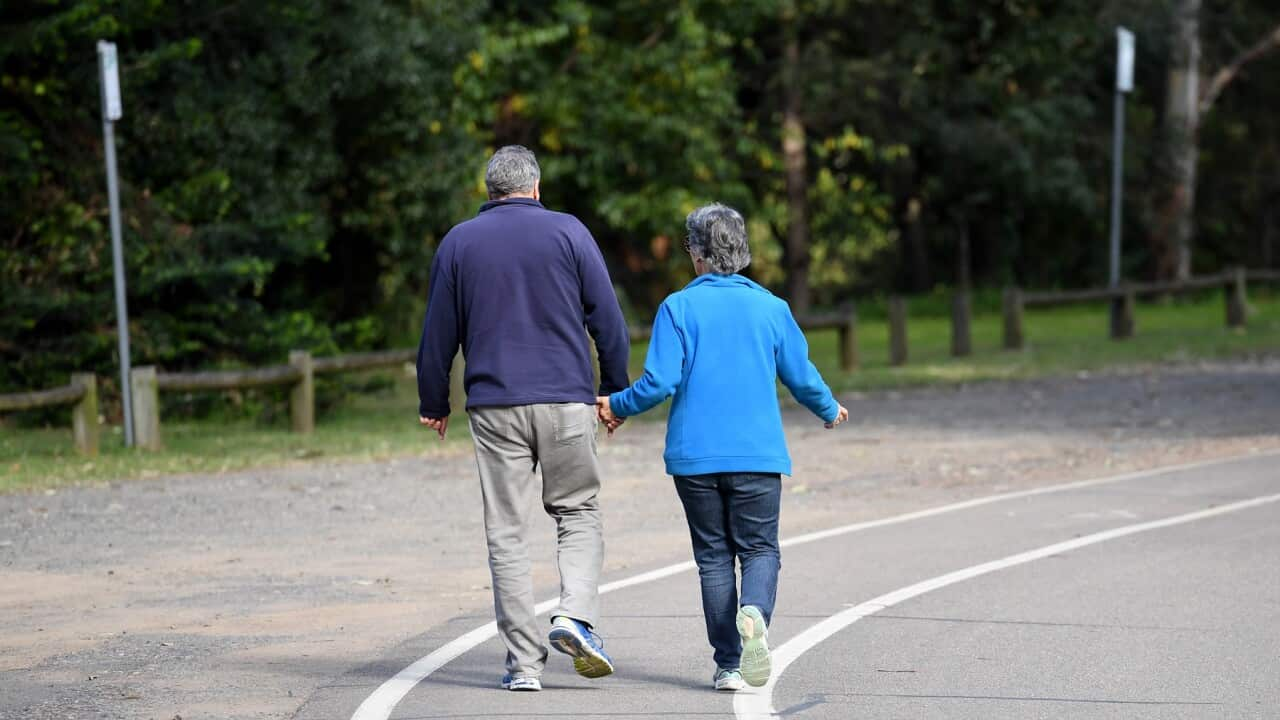TRANSCRIPT
For the 2.5 million Australians expected to retire in the next decade, thoughts about how much is needed to fund retirement differs.
"VOX 1: "Uh, probably about forty five, fifty thousand dollars just to to live comfortably on with it, without living like a pensioner."
VOX 2: "Well, just looking at news media and other outlets, I think I probably need a million dollars or just over"
VOX 3:" I don't really know, um, I'd say in a couple of millions, though, would be my best guess. "
New research by Australia's peak superannuation group shows that right now, just 30 per cent of Australians will be able to retire comfortably.
By 2050, the number of people retiring with enough money to fund a comfortable lifestyle is set to rise to 50 per cent or more.
The Association of Superannuation Funds of Australia defines a comfortable retirement as the ability to afford everyday expenses, an occasional restaurant meal, and an overseas holiday once every seven years.
Couples now need $690,000 in super to fund their retirement, while singles need $595,000, with both standards applying to homeowners over the age of 65.
In June 2022, the median super balance for people aged 60 to 64 was just over $205,000 for males and a little under $154,000 for females, a 25.2 per cent difference.
ASFA CEO Mary Delahunty, says there are persistent gender gaps when it comes to retirement funds.
"Data released by ASFA today shows that there is a persistent gender super gap for people retiring and whilst, this is a magnification of what happens in working life, there are certain policies that we need to see enacted to address this. Firstly, superannuation on paid parental leave, which is currently being debated in the parliament, is a really critical component to this. Secondly, we need to seek fairer tax settings for those on low incomes, and so the listo becomes the next I think policy initiative that we will have to address."
But superannuation balances have been impacted over the last couple of years by substantial benefit payments.
Around 160,000 accounts closed as a result of COVID Early Release payments, with up to one million accounts left with less than $1,000.
Mary Delahunty says the early release payments were detrimental on the retirement funds of Australians who accessed them.
"We saw a really unfortunate policy lever pulled in COVID that we hope never to be touched again, and that was the attack on preservation. It has had an enormously detrimental effect on retirement balances, which means that people have had to take from their own future selves to bail themselves out of COVID and they will feel that in the long run, it's terribly unfair on them."
Experts say people should be checking their payslips and superannuation statements to make sure they're being paid correctly.













